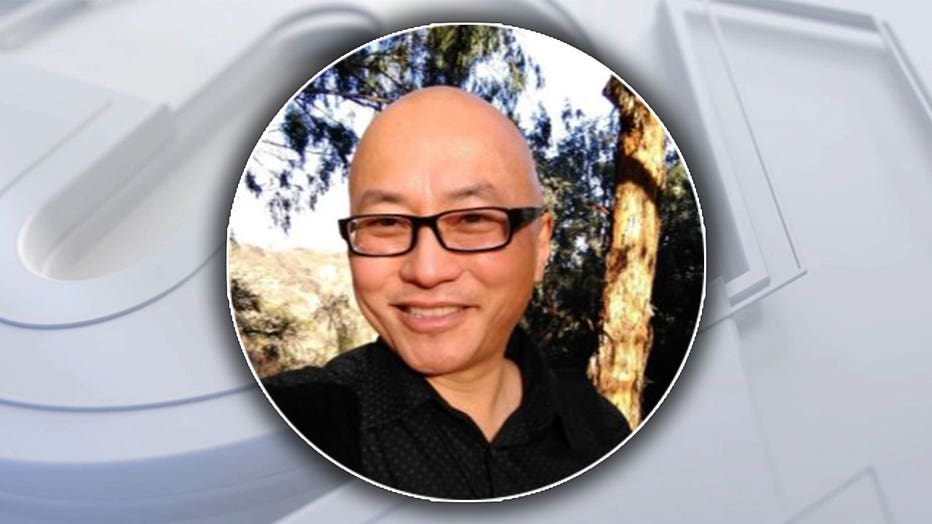Matthew Perry's assistant Kenneth Iwamasa injected him with ketamine on day of death: DOJ

Arrests made in Matthew Perry's ketamine OD death
Five people are facing charges in Matthew Perry's ketamine overdose death.
LOS ANGELES - Kenneth Iwamasa, the live-in assistant of late actor Matthew Perry, is alleged to have injected him with ketamine on October 28, 2023, when Perry died at his Pacific Palisades home, according to new charges unsealed Thursday.
Perry, best known for his role on "Friends," was found dead in his hot tub by Iwamasa, the Los Angeles Police Department reported at the time of his death. Among the causes of death listed in his autopsy was "acute effects of ketamine," a powerful anesthetic and controlled substance.
Iwamasa, 59, of Toluca Lake, has been charged with conspiracy to distribute ketamine resulting in death. The superseding indictment alleges that Iwamasa, who had no medical training, repeatedly administered ketamine to Perry, including on the day of Perry’s death.

Kenneth Iwamasa profile photo via LinkedIn.

Matthew Perry’s assistant among 5 charged in his death
A prosecutor says five people have been charged in connection with Matthew Perry’s death from a ketamine overdose last year, including the actor’s assistant and two doctors.
The indictment details that Iwamasa worked with Jasveen Sangha, 41, of North Hollywood, and Eric Fleming, 54, of Hawthorne, as well as Dr. Salvador Plasencia, 42, of Santa Monica, and Dr. Mark Chavez, 54, of San Diego, to illegally obtain and distribute ketamine to Perry. Sangha, known as "The Ketamine Queen," and Plasencia are charged with conspiracy to distribute ketamine, with Plasencia also facing charges for altering and falsifying medical records.
Dr. Plasencia and Dr. Chavez allegedly supplied ketamine to Perry, with Iwamasa handling the distribution. They reportedly provided around 20 vials of ketamine to Perry over two months, exchanging them for $55,000 in cash. Plasencia was allegedly aware of the drug's harmful effects, having witnessed Perry suffer adverse reactions, including a spike in blood pressure.
RELATED:
- Matthew Perry: Two doctors, 'Ketamine Queen,' among 5 charged in actor's death
- Matthew Perry ketamine death: 5 arrested in connection to actor's overdose
Sangha, known as the "Ketamine Queen," is accused of selling about 50 vials of ketamine to Perry over a two-week period in October 2023. Fleming served as a broker in these transactions, according to the indictment.
Following Perry's death, a search of Sangha's home uncovered evidence of drug trafficking, including approximately 79 vials of ketamine, approximately 3.1 pounds of orange pills containing methamphetamine, psilocybin mushrooms, cocaine, and prescription drugs that appeared to be fraudulently obtained.
In text messages to Chavez, Plasencia discussed how much to charge Perry for the ketamine, stating, "I wonder how much this moron will pay" and "Lets [sic] find out."

Matthew Perry death: 'Ketamine Queen' Jasveen Sangha appears in court
Court sketches have been released of two of the five people arrested in the overdose death of actor Matthew Perry.
DEA Administrator Anne Milgram said in one instance the actor paid $2,000 for a vial of ketamine that cost one of the physicians about $12.
The investigation also linked Sangha to a previous ketamine-related death in 2019, where another individual, Cody McLaury, died under similar circumstances. Sangha is charged with distributing ketamine that caused Perry’s death on October 24, 2023. After a family member of McLaury’s sent Sangha a text message saying that her ketamine had killed McLaury, Sangha conducted a Google search for "can ketamine be listed as a cause of death[?]" The superseding indictment alleges that Sangha nonetheless continued to sell ketamine from her stash house.
If convicted, the defendants face significant prison sentences. Sangha could face a mandatory minimum of 10 years and up to life imprisonment, while Plasencia faces up to 120 years in federal prison. Iwamasa and Fleming will face up to 15 years and 25 years, respectively, when they are sentenced in their federal cases.
Chavez entered a plea agreement and will be arraigned on August 30. At sentencing, Chavez will face up to 10 years in federal prison.
DEA Administrator Anne Milgram emphasized the broader implications of the case, stating, "The desperation that led Perry to these individuals was not met with help but with exploitation."

5 arrested in Matthew Perry's death investigation
Local and federal authorities announced Thursday five people have been arrested, including two doctors, in Matthew Perry's overdose death.
Chief Dominic Choi of the Los Angeles Police Department highlighted the importance of impartial justice, noting, "Breaking the law is breaking the law. And you are dangerous and you are jeopardizing lives."


